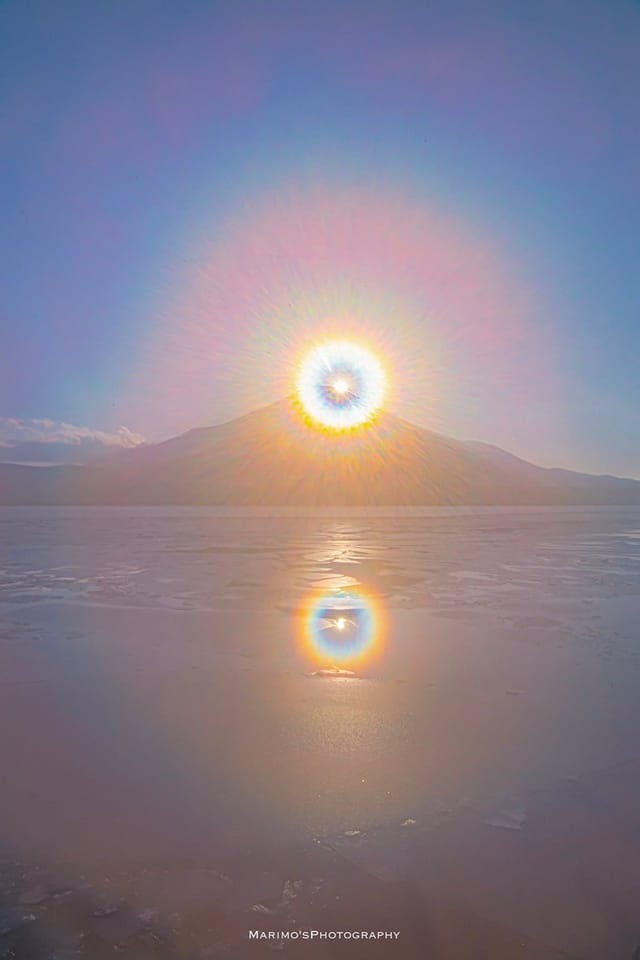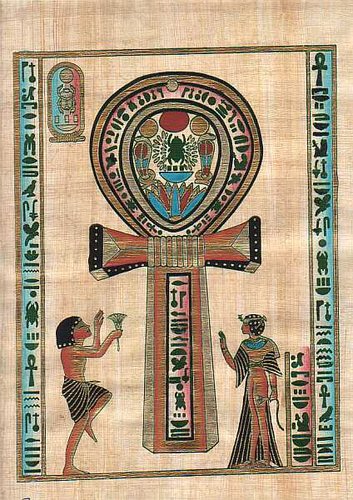
DEATH
死亡
(1) I speak about Death as one who knows the matter from both the outer world experience and the inner life expression: There is no death. There is, as you know, entrance into fuller life. There is freedom from the handicaps of the fleshly vehicle. The rending process so much dreaded does not exist, except in the cases of violent and of sudden death, and then the only true disagreeables are an instant and overwhelming sense of imminent peril and destruction, and something closely approaching an electric shock. No more. For the unevolved, death is literally a sleep and a forgetting, for the mind is not sufficiently awakened to react, and the storehouse of memory is as yet practically empty. For the average good citizen, death is a continuance of the living process in his consciousness and a carrying forward of the interests and tendencies of the life. His consciousness and his sense of awareness are the same and unaltered. He does not sense much difference, is well taken care of, and oft is unaware that he has passed through the episode of death. For the wicked and cruelly selfish, for the criminal and for those few who live for the material side only, there eventuates that condition which we call “earth-bound”. The links they have forged with earth and the earthward bias of all their desires, force them to remain close to the earth and their last setting in the earth environment. They seek desperately and by every possible means to re-contact it and to re-enter. In a few cases, great personal love for those left behind or the non-fulfilment of a recognised and urgent duty, holds the good and beautiful in a somewhat similar condition. For the aspirant, death is an immediate entrance into a sphere of service and of expression to which he is well accustomed and which he at once recognises as not new. In his sleeping hours he has developed a field of active service and of learning. He now simply functions in it for the entire twenty-four hours (talking in terms of physical plane time) instead of for his usual few hours of earthly sleep. (4 – 300/1).
(1)我谈到死亡,是从人们所知的外在世界体验和内在生命表达两个方面来讲:不存在死亡。如你所知,存在的是进入更全面的生命。存在的是从肉体载具的障碍中获得的自由。让人如此可怕的撕裂过程并不存在,除了在暴力和突然死亡的情况下,唯一真正的不快是一种即刻的、压倒性的迫切危险和毁灭的感觉,以及一种非常接近电击的感觉。没有更多了。对于未进化的人来说,死亡实际上是一种睡眠和遗忘,因为心智没有充分地觉醒来做出回应,记忆的仓库几乎是空的。对于普通的良好公民来说,死亡是他意识中生命过程的延续,是生命兴趣和喜好的持续发扬。他的意识和他的感知是相同的,没有改变。他没有感觉到太大的不同,也得到了很好的照顾,并且常常不知道自己已经度过了死亡的那一段。对于邪恶和残忍自私的人,对于那些只为物质面向而活的罪犯和少数人,最终会出现我们所谓的“地球捆绑”状况。他们与地球建立的纽带,以及他们所有欲望朝向地球的倾向,强迫他们与地球拉近距离,以及他们在地球环境中长久的束缚。他们拼命地通过一切可能的方式重新接触并进入物质层面。在少数情况下,出于那些被遗留在身后的深切的个人之爱,或者尚未履行的被认可的迫切职责,也会让一些良善之人处于一种类似的状态中。对于寻求者来说,死亡是进入他已经习以为常的服务和表达领域的直接入口,他会即刻意识到这不是什么新鲜事儿。在他睡觉的时间里,他发展了积极服务和学习的领域。他现在只是整整二十四个小时都在其中运作(就物质层面的时间而言),而不是他的物质身体通常进行休息时的那几个小时。
(2) The mind of man is so little developed that fear of the unknown, terror of the unfamiliar, and attachment to form have brought about a situation where one of the most beneficent occurrences in the life cycle of an incarnating Son of God is looked upon as something to be avoided and postponed for as long a time as possible.
(2)人的心智进化程度如此之低,以至于对未知的恐惧、对陌生的害怕、对形态的依恋带来一种状况,即一位转世中的神之子的生命周期中最有益处的事件却被看作是要尽可能长时间避免和推迟的。
Death, if we could but realise it, is one of our most practised activities. We have died many times, and shall die again and again. Death is essentially a matter of consciousness. We are conscious one moment on the physical plane, and a moment later we have withdrawn onto another plane and are actively conscious there. Just as long as our consciousness is identified with the form aspect, death will hold for us its ancient terror. Just as soon as we know ourselves to be souls, and find that we are capable of focussing our consciousness or sense of awareness in any form or any plane at will, or in any direction within the form of God, we shall no longer know death.
死亡,如果我们可以意识到的话,是我们最常进行的活动之一。我们已经死亡过很多次,而且还会一次又一次地死去。死亡本质上来说是意识的问题。有一刻我们在物质层面上是有意识的,下一刻我们就让意识退回至另一个层面,并在那里积极地活跃着。只要我们的意识与形态面向认同,对我们而言死亡就会保留它古老的恐惧。一旦我们知道自己是灵魂,我们发现自己可以随意地把我们的意识或者感官觉知集中在任何形态或者层面上,或者放在神之形态内部的任何地方,我们将不再知道死亡。
. . . People are apt to forget that every night, in the hours of sleep, we die to the physical plane and are alive and functioning elsewhere. They forget that they have already achieved facility in leaving the physical body; because they cannot as yet bring back into the physical brain consciousness the recollection of that passing out, and of the subsequent interval of active living, they fail to relate death and sleep. Death, after all, is only a longer interval in the life of physical plane functioning; one has only “gone abroad” for a longer period. But the process of daily sleep, and the process of occasional dying are identical, with the one difference that in sleep the magnetic thread or current of energy along which the life force streams, is preserved intact, and constitutes the path of return to the body. In death, this life thread is broken or snapped. When this has happened, the conscious entity cannot return to the dense physical body, and that body, lacking the principle of coherence, then disintegrates. (4 – 494/5).
…人们很容易忘记,每天晚上在睡觉的几个小时内,我们都在物质层面死亡,并在其他地方活跃着、发挥作用。他们忘记了他们已经可以很容易地离开物质身体;因为他们还不能把自己离开物质身体、以及随后进行的活跃生活带回到物质大脑的意识之中,他们不能把死亡和睡眠联系起来。毕竟,死亡是生命淡出物质层面一段较长的时间;一个人仅仅“离开”较长的时间。而日常的睡眠过程,与偶然的死亡过程是相同的,唯一的区别是,在睡眠中,生命力流经的磁力线或能量流完好无损,构成了返回身体的路径。死亡时,这条生命之线断裂或者折断。当这发生时,有意识的实体就无法返回稠密的物质身体,物质身体缺乏把身体连贯起来的生命力,从而瓦解。
(3) The young forget, and rightly forget, the inevitability of that final symbolic detachment which we call Death. But when life has played its part, and age has taken its toll of interests and strength, the tired and world-weary man has no fear of the detaching process, and seeks not to hold on to that which earlier was desired. He welcomes death, and relinquishes willingly that which earlier engrossed his attention. (15 – 76).
(3)年轻一代遗忘了,并且是合情合理地遗忘了,我们称之为死亡的最终象征性分离的必然性。但是当生命发挥出它的作用,年龄让人失去了兴趣和力量时,疲倦和厌世的人就不再害怕分离的过程,并且不会试图去抓住之前想要附着的东西。他会欢迎死亡,并心甘情愿地释放早先占据他注意力的事物。
(4) Death, as the human consciousness understands it, pain and sorrow, loss and disaster, joy and distress, are only such because man, as yet, identifies himself with the life of the form and not with the life and consciousness of the soul, the solar angel. . . . The moment a man identifies himself with his soul and not with his form, then he understands the meaning of the Law of Sacrifice; he is spontaneously governed by it; and he is one who will, with deliberate intent, choose to die. But there is no pain, no sorrow, and no real death involved. (15 – 94).
(4)死亡,正如人类意识所理解的那样,痛苦和悲伤,损失和灾难,欢乐和痛苦,之所以如此是因为迄今为止,人类将自己认同于生命的形态,而不是生命和灵魂的意识,太阳天使…当一个人把自己认同为他的灵魂而非他的形态时,他就理解了牺牲法则的意义;他就会自发性地受它支配;他就会是一个怀着从容的态度、乐意选择死亡的人。但是没有痛苦,也没有悲伤,也不会有真正的死亡。
(5) The intent is for man to die, as every man has to die, at the demand of his own soul. When man has reached a higher stage in evolution, with [Page 66] deliberation and definite choice of time, he will consciously withdraw from his physical body. It will be left silent and empty of the soul; devoid of light, yet sound and whole; it will then disintegrate, under the natural process, and its constituent atoms will pass back into the “pool of waiting units”, until they are again required for the use of incarnating souls. Again, on the subjective side of life, the process is repeated, but many have already learnt to withdraw from the astral body without being subject to that “impact in the fog”, which is the symbolic way of describing the death of a man upon the astral plane. He then withdraws on to the mental level, and leaves his astral carcass to swell the fog, and increase its density. (17 – 29).
(5)在他自己灵魂的要求下,目的是要让人死亡,因为每个人必须死亡。当人到达更加进化的阶段时,经过深思熟虑和明确选择的时间,他将有意识地从自己物质身体中撤回。物质身体会被安静地留下,没有灵魂的存在;没有光,却完好无损;然后它将在自然过程中瓦解,其组成的原子将返回至“等待单元池”,直至转世的灵魂再次需要使用它们。再次,在生命的主体部分,这个过程重复着。但是很多人已经学会如何从星光体中撤离而不受制于“迷雾的影响”,这是一个死亡的人在星光层的象征性描述。然后他继续撤离至心智层,留下他的星光尸体,让迷雾更厚重,增加了其浓稠度。
(6) Death has been present upon our planet from the very night of time itself; forms have come and gone; death has overtaken plants and trees, animals and the forms of human beings for untold aeons, and yet our planet is not a charnel house, as it well might be in the face of this fact, but is still a thing of beauty, unspoilt even by man. The processes of dying and of dissolution and the dissipation of forms, goes on every moment without producing contagious contamination, or the disfiguring of the surface of the earth. The results of dissolution are beneficent in effect. Ponder on this beneficent activity, and on the beauty of the divine plan of death and disappearance. (17 – 245).
(6)自从时间之夜开始出现后,死亡就出现在了我们星球上;各式各样的形态来来去去;死亡已经占据了植物、树木、动物和人类形态数不尽的时间了,然而,我们的星球并不是一个停尸房,尽管它可能要面对这一事实;然而,它仍然是一个美丽的星球,甚至未经人类破坏。死亡、瓦解和形态的消散过程每时每刻都在进行,不会产生传染性的污染,也不会毁坏地球表面。瓦解的结果就其影响而言是有益的。仔细思考这项有益的活动,以及死亡和消失的神圣计划之美。
(7) The cycle in which we now live, has seen the greatest destruction of human forms, in the entire history of our planet. There has been no destruction of human beings. I would have you note this statement. Because of this wholesale destruction, humanity has made a very rapid advance towards a more serene attitude in connection with death. This is not yet apparent but – in a few years time – the new attitude will begin to be marked, and the fear of death will begin to die out in the world. This will also be largely due to the increased sensitivity of the human response apparatus, leading to a turning inward, or to a new orientation of the human mind, with unpredictable results. (17 – 432).
(7)我们所生活的这个周期,见证了我们星球整个历史上人类形态遭受的最大破坏。人类存有没有被毁灭。我希望你们注意这个声明。由于大规模的破坏,人类在对待死亡方面已经朝着一种更加平静的态度迈进了非常迅速的一步。这还不算明显 —— 在几年之后 —— 新的态度将会开始显著,对死亡的恐惧将会在世界上消失。这也是由于人类反应能力的敏感性增加,开始向内看,或者说朝向人类心智的新方向发展,其结果不可预测。
(8) Could you but see a little further into the matter, you would learn that death releases the individualised life into a less cramped and confined existence, and eventually – when the death process has been applied to all the three vehicles in the three worlds – into the life of universality. This is a point of inexpressible bliss. (17 – 433).
(8)你能否更深入地了解这件事情,你就会了解到死亡把个体化的生命释放到一种不那么局促和受限的存在中,并且最终 —— 当死亡过程被应用到三个世界中的所有三个载具中时 —— 进入生命的整体性。这是一个无法形容的幸福状态。
(9) The sin of murder is in reality based upon the fact that it interferes with the soul purpose, and not really upon the killing of a particular human physical body . . .
(9)谋杀的罪行在于,实际上它干涉了灵魂的目的,而不是真正在于杀害某个特定人类的肉身…
Death appears frequently to be so purposeless; that is because the intention [Page 67] of the soul is not known; past development, through the process of incarnation, remains a hidden matter; ancient heredities and environments are ignored, and recognition of the voice of the soul is not generally developed. These are matters, however, which are on the very verge of recognition; revelation is on its way, and for that I am laying the foundation. (17 – 436).
死亡常常显得如此漫无目的;那是因为灵魂的意图是未知的;通过转世的过程进行的过去的发展,仍然是一件不为人知的事情;古老的传承和环境被忽视了,对灵魂声音的识别一般来说并不发达。然而,这些问题正处于被认知的边缘;启示正在到来,为此我在奠定基础。
(10) Death to the average thinking man is a point of catastrophic crisis. It is the cessation and ending of all that has been loved, all that is familiar and to be desired; it is a crashing entrance into the unknown, into uncertainty, and the abrupt conclusion of all plans and projects. No matter how much true faith in the spiritual values may be present, no matter how clear the rationalising of the mind may be anent immortality, no matter how conclusive the evidence of persistence and eternity, there still remains a questioning, a recognition of the possibility of complete finality and negation, and an end of all activity, of all heart reaction, of all thought, emotion, desire, aspiration, and the intentions which focus around the central core of man’s being. The longing and the determination to persist, and the sense of continuity still rest, even to the most determined believer, upon probability, upon an unstable foundation, and upon the testimony of others – who have never in reality returned to tell the truth. (17 – 438), (18 – 102).
(10)对于一般有思想的人来说,死亡是灾难性的危急时刻。它是所有被爱、所有熟悉和所渴望事物的停止和终结;它是进入未知、不确定性,以及所有计划和项目突然结束的绝对入口。不论人们对灵性价值有多少真正的信念,不论心智对永生的合理推论是多么清晰,不论持久和永恒的证据是多么确凿,仍然存在着质疑,承认可能存在着完全的终结和消除,所有活动、所有心灵反应、所有想法、情绪、欲望、愿望和围绕着人类存在核心意图的终结。即便对于最坚定的信徒来说,对于继续存在的渴望和决心,以及持续存在的感觉仍然是一种可能性,这些都基于不稳定的基础和他人的证词 —— 可这些人实际上从回来讲出事实。
(11) Perhaps some lines from the Manual of Death which is to be found in the hierarchical archives would prove explanatory to you, and might aid you in gaining a new perspective upon death . . .
(11)或许从灵性阶层的档案《死亡手册Manual of Death》中可以找到一些对你来说的解释,或许会帮助你获得对死亡的新看法…
“This descending and ascension men call life, existence, and decease; this We Who tread the Lighted Way call death, experience and life.
“人们把这种沉降和上升称之为生命、存在和死亡;我们行走在光明之路上的人称之为死亡、体验和生命。”
“Light which descends anchors itself upon the plane of temporary appearance. Seven threads it outward puts, and seven rays of light pulsate along these threads. Twenty-one lesser threads are radiated thence, causing the forty-nine fires to glow and burn. Upon the plane of manifested life, the word goes forth: Behold! A man is born.
“圣光沉降下来把自己锚定在暂时显化的层面上。它向外发出七道生命之线,七道光沿着这些生命之线脉动。从那里又辐射出二十一条较小的光,从而让四十九道火的发光和燃烧。在显化生命的层面,这样的话语传出:看呐!一个人诞生了。”
“As life proceeds, the quality of light appears; dim and murky it may be, or radiant, bright and shining. Thus do the points of light within the Flame pass and repass; they come and go. This men call life; they call it true existence. They thus delude themselves, yet serve the purpose of their souls and fit into the greater Plan.
“随着生命的继续,光的特质出现;它可能是暗淡和阴暗的,又或者是光芒四射的,明亮且闪耀的。因此火焰中的光点来来去去;它们来到又离开。人们把这称之为生命,称之为真正的存在。他们在自欺欺人,事实上他们服务于他们灵魂的目的,并符合更伟大的计划。”
“And then a Word sounds forth. The descended, radiating point of light ascends, responsive to the dimly heard recalling note, attracted to its emanating source. This man calls death and this the soul calls life.” (17 – 468/9).
“然后一个词响起。沉降下来的闪耀的光点上升,响应着隐约听到的回忆性音符,被它发出的源头所吸引。人们把这称之为死亡,而灵魂把这称之为生命。”
(12) Death is now the result of the will of the soul. Eventually it has to be the result of the united will of the soul and the personality, and when that happens, there will be no fear of death. (5 – 669).
(12)现在,死亡是灵魂意志的结果。最终它必须是灵魂和人格意志的统一,当这种情况发生时,就不会有对死亡的恐惧。



